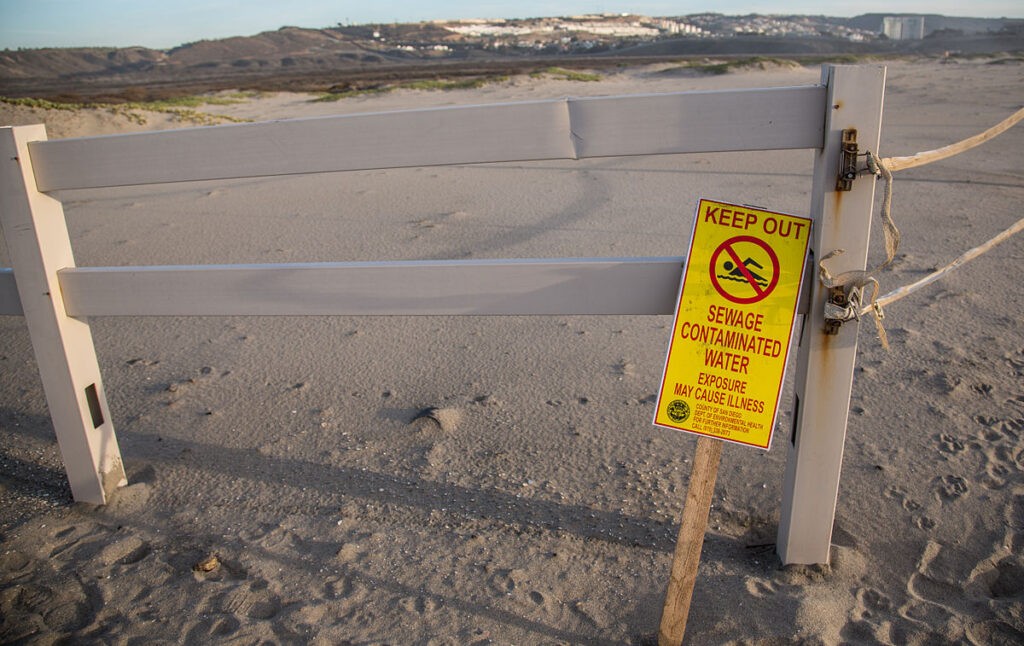Health
UC San Diego study links sewage-linked bacteria to airborne particles at Imperial Beach

WHAT YOU NEED TO KNOW!
- A study from UC San Diego’s Scripps Institution of Oceanography found sewage-linked bacteria in sea-spray aerosols at Imperial Beach.
- The potential health impacts of inhaling the cocktail of pollutants are still unknown, but researchers plan to swab lifeguards and surfers to gauge respiratory exposure.
- The study linked up to 76% of the airborne bacteria in Imperial Beach to the heavily polluted Tijuana River.
Researchers from UC San Diego’s Scripps Institution of Oceanography have found sewage-linked bacteria in sea-spray aerosols at Imperial Beach. The study was published in the journal Environmental Sciences & Technology, and it is the first to link airborne bacteria to a known source of sewage.
The study was conducted following rain events in early 2019, with air and water samples taken from the Tijuana River, Imperial Beach Pier, and Scripps Pier in La Jolla. Using DNA sequencing, the team linked up to 76% of the airborne bacteria in Imperial Beach to the heavily polluted river.
The potential health impacts of inhaling the cocktail of pollutants are still unknown, but researchers plan to swab lifeguards, surfers, and others to gauge respiratory exposure. They also hope to scrutinize hospital records and monitor indoor air quality.

Principal investigator on the study and director of the Center for Aerosol Impacts on Chemistry of the Environment at Scripps, states
“The bottom line is we don’t know what the effect is yet of inhaling this cocktail that comes out of the ocean… This is tip of the iceberg. We’re trying to keep everybody calm.”
Kim Prather
Sewage pollution from Mexico has led to the closure of beaches as far north as Coronado, with Imperial Beach posting sewage contamination warnings on its beaches for 249 days in 2022. The Tijuana Sloughs, a once-coveted surfing spot located at the mouth of the river, has been closed since December 2021.
Water polluted with sewage carries a much higher risk of pathogens, such as E. Coli, norovirus, and salmonella, compared to the typical urban runoff that follows rainstorms, according to county public health officials. Those who ignore the restrictions could be at risk of diarrhea, fever, respiratory disease, and infections.
The spending bill for this year includes $1.5 million secured by Rep. Scott Peters for Prather and her team to further investigate the public health ramifications of airborne pollutants and potential pathogens. Co-author of the study and professor of pediatrics, computer science, and engineering at UC San Diego, states
“Now that we know this is a real phenomenon, we need to find out what are the impacts to human health.”
Robert Knight,
Source: msn.com
